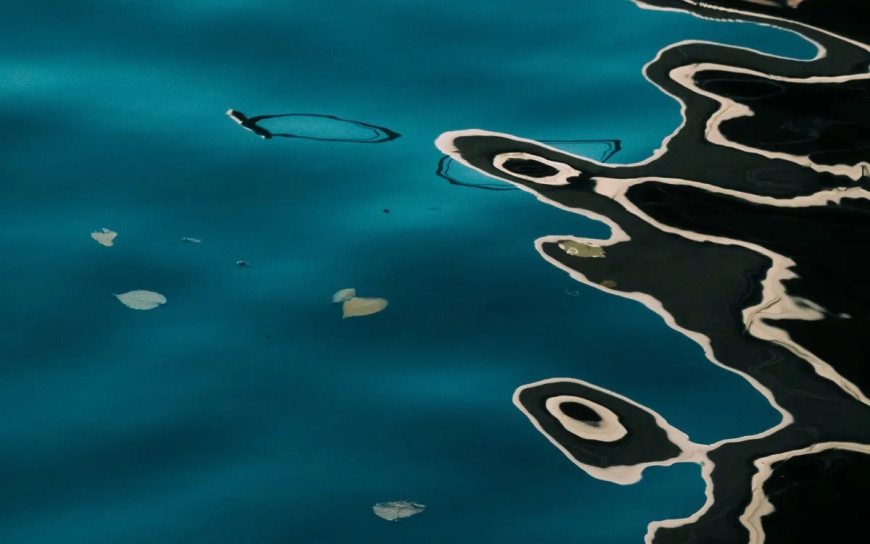Is Thailand 's Paradise realm about to disappear with the gradual destruction?

OPINION: Last month's news that the Thai government was seriously considering moving the capital due to rising seas sent shockwaves across the country. Help for this impressive proposal? The current capital city of Bangkok and the beating heart of Thailand are drowning.
A recent article in the South China Morning Post highlighted comments by Pavich Kesavawong, Deputy Director-General of Thailand's Department of Climate Change and Environment, who warned that Bangkok's low-lying location makes it vulnerable to inundation before the end of the century.
With Bangkok facing an existential threat, the search for a new capital has begun. Enter Phuket, which only this week announced large infrastructure improvements, ranging from highway upgrades to a new monorail system.
While the island conjures images of pristine beaches and turquoise waters, its potential as a capital city is intriguing and riddled with captivating possibilities and daunting challenges. It's important to note that the capital would only be moving as a political and government base, not a business hub, similar to Canberra in Australia.
BANGKOK'S SINKING REALITY
Bangkok, Thailand's bustling heart, is a city at war with water. Much of the capital sits precariously low-lying, vulnerable to the rising tides brought on by climate change. The annual rainy season already transforms streets into canals, a stark reminder of the city's past and precarious future.
Subsequent governments have attempted to fortify Bangkok with seawalls and dykes, mirroring the Dutch approach. Yet, these solutions seem like band-aids on a gaping wound. The stark reality is that clinging to a sinking ship, or city in this case, might not be an option for much longer.
PHUKET: A BEACON OF HOPE OR A MIRAGE OF CONVENIENCE?
Phuket, now acting as an international hub catering to international visitors, locals, and expats. It boasts a stunning natural environment and a more relaxed pace of life than Bangkok, making it a tempting alternative.
Proponents of the move envision a glistening new capital, a global hub that attracts foreign dignitaries with its tropical charm. Separating the business and government centres, as suggested, could foster a more streamlined and transparent political landscape. Imagine high-level diplomatic meetings taking place with the sound of waves crashing in the background - a stark contrast to the frenetic energy of Bangkok.
PARADISE WITH A PRICE TAG
However, beneath the surface of this idyllic vision lurks a multitude of challenges. Phuket's current infrastructure, while impressive for tourism, is far from equipped to handle the demands of a capital city. While we've already mentioned proposed improvements, they have been promised in the past with no results. Additionally, a critical mass of office space simply doesn't exist. Attracting and retaining qualified personnel for government positions on an island known for its poor labour market and laid-back lifestyle could prove difficult.
Transportation networks, while adequate for tourists seeking beaches, would struggle with the daily commute of a bustling government apparatus. The island's dependence on tourism also raises concerns. While a bustling capital might attract international attention, it could also create fertile ground for foreign influence on Thai politics.
The influx of government officials and residents would undoubtedly strain the island's resources. The very beauty that draws tourists - the pristine beaches, the vibrant coral reefs - could be threatened by an unsustainable population boom. Striking a balance between economic prosperity, environmental protection, and political function would be paramount.
LEARNING FROM INDONESIA
Thailand would be wise to heed the cautionary tale of Indonesia's ongoing saga with its new capital, Nusantara, on the east coast of Borneo. The astronomical cost of building a brand-new capital city from scratch serves as a stark reminder of the immense financial burden associated with such an undertaking. While the long-term benefits of a purpose-built capital might be undeniable, the immediate costs could cripple Thailand's economy.
THE ROAD AHEAD: A CALCULATED MOVE, NOT A LEAP OF FAITH
Phuket's candidacy, while intriguing, might not be the only solution. Building a new capital from scratch on mainland Thailand, on higher ground and with a long-term vision for sustainability, could be a more viable option. This approach would allow for a more controlled and planned development, potentially mitigating some of the infrastructure concerns associated with Phuket.
The decision to relocate the capital is a monumental one, fraught with complexities and far-reaching consequences. A thorough feasibility study, encompassing not just Phuket but also alternative mainland locations, is crucial.
Environmental impact assessments, economic analyses, and in- depth evaluations of infrastructure needs must be conducted to ensure a smooth transition. Public participation is also paramount.
The people of Thailand, especially those directly affected by the potential move, deserve a say in shaping the future of their nation. Open discussions, transparent evaluations, and a commitment to long-term sustainability should guide this critical decision. The writer seriously doubts Phuket will be a serious consideration or even a viable one.
What's Your Reaction?















































































